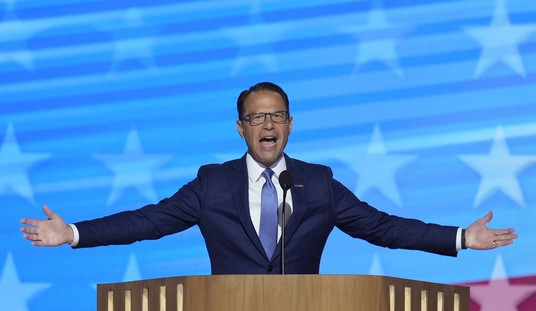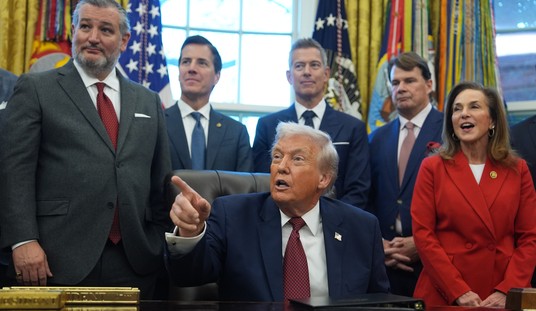On Wednesday, U.S. Immigration and Customs Enforcement (ICE) announced a temporary halt in some of its deportation efforts in response to the coronavirus pandemic. The agency’s priority will be to focus on those determined to be a safety risk or under mandatory deportation order due to criminal history.
In other words, now is the time to focus on those who pose the most danger to local communities while encouraging those needing testing or treatment to seek it without fear of being rounded up for deportation. ICE released a statement explaining the temporary changes in operations, as well as outlining what the priorities will be going forward.
To ensure the welfare and safety of the general public as well as officers and agents in light of the ongoing COVID-19 pandemic response, U.S. Immigration and Customs Enforcement (ICE) will temporarily adjust its enforcement posture beginning today, March 18, 2020. ICE’s highest priorities are to promote life-saving and public safety activities.
ICE Enforcement and Removal Operations (ERO) will focus enforcement on public safety risks and individuals subject to mandatory detention based on criminal grounds. For those individuals who do not fall into those categories, ERO will exercise discretion to delay enforcement actions until after the crisis or utilize alternatives to detention, as appropriate.
Homeland Security Investigations will continue to carry out mission critical criminal investigations and enforcement operations as determined necessary to maintain public safety and national security. Examples include investigations into child exploitation, gangs, narcotics trafficking, human trafficking, human smuggling, and continued participation on the Joint Terrorism Task Force. This work will be conducted based on ability to coordinate and work with prosecutors from the Department of Justice and intake at both the U.S. Marshals Service and Bureau of Prisons.
Consistent with its sensitive locations policy, during the COVID-19 crisis, ICE will not carry out enforcement operations at or near health care facilities, such as hospitals, doctors’ offices, accredited health clinics, and emergent or urgent care facilities, except in the most extraordinary of circumstances. Individuals should not avoid seeking medical care because they fear civil immigration enforcement.
Updated ICE statement on #COVID19: https://t.co/JyQ3d2Nsl3 pic.twitter.com/PxgAy2aSX8
— ICE (@ICEgov) March 19, 2020
It makes sense for now for immigration enforcement resources to be used on the most dangerous illegal aliens. Those who pose less risk or are living normal lives – except for being in the country illegally – should seek testing and treatment if it is warranted in order to stop the spread of COVID-19 to others. Emergency situations require prioritizing responses. Investigations will continue into child exploitation, gangs, narcotics trafficking, human trafficking, and terrorism. There are approximately 37,000 current immigration detainees. ICE will focus on people who are subject to mandatory detention because of their criminal convictions. Essentially this puts ICE back on the footing the agency was on during the Obama administration – the “felons not families” approach of deportations.
Claiming “widespread misreporting,” on Thursday Acting Deputy Homeland Security Secretary Ken Cuccinelli clarified the temporary policy. The policy protects ICE agents from unnecessary exposure to the virus as well as continuing to uphold the law.
“The health and safety of Americans is paramount. Thus, ICE will, as it has during other times of crisis, conduct enforcement operations that protect our communities and uphold our laws. This means that ICE will continue to prioritize arresting and removing criminal aliens and other aliens who pose a threat to public safety, just as it always has during President Trump’s administration,” he said.
“That does not mean that no other removable aliens will in fact be removed, but during the current public health situation, removals will be done in such a way as to minimize the exposure of our agents and of the removable aliens we are encountering,” he said. “ICE will exercise its law enforcement authority in a manner that accounts for the dangers presented by COVID-19, while maintaining the safety and security of the communities it has sworn to protect.”
Immigration lawyers and labor unions representing ICE prosecutors and immigration judges joined together to call for a suspension of immigration court schedules. Court officials have canceled all hearings except for those already detained. As of Tuesday, there were no confirmed cases of COVID-19 in ICE detention facilities. In order to keep it that way, visits to detainees have been suspended. Nonetheless, a lawsuit has been filed asking for the release of detainees in order to protect them from COVID-19, citing the close quarters. The detainees are mostly adults but some are elderly and there are some families with children. ACLU’s National Prison Project is working for the release of detainees. Attorneys cite that lives are endangered in the close quarters of detention centers.
If that’s the case, all prisoners should be released from jails and prisons, right? Some jails across the country are beginning to do that with those prisoners who pose the least danger to the general population – regular criminals, not illegal aliens – in order to reduce the spread of the virus. I don’t think it’s a realistic solution on a large scale but difficult times call for tough decisions.
Immigration courts are some of the last to be closed. Adjustments have been made to the courts that are open. DOJ has closed immigration courts across the country until April 10. For the first time since the government shutdown last year, immigration courts are postponing hearings of cases of immigrants who are not in detention. Court employees are expected to stay home and offices are closed to the public. So, whatever courts that do remain open are being called upon to close by immigration judges and lawyers. The union released a statement. An immigration court in my city is closed. Not all are closed yet across the country. The new guidelines will reduce traffic in the courts that remain open.







Join the conversation as a VIP Member